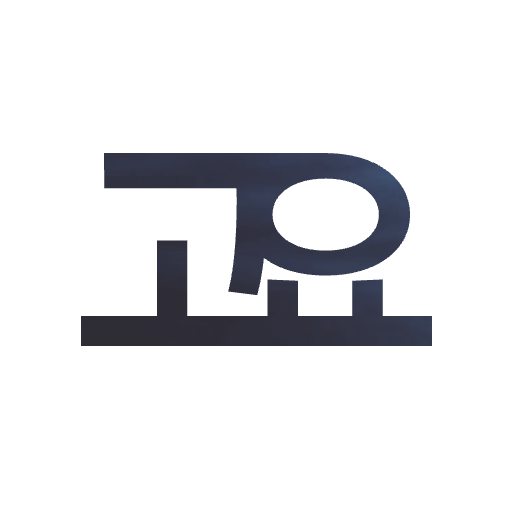Creating a Landing Page
Learn how to create a modern, feature-rich landing page with Goyo.
The landing page is the first page visitors see. In Goyo, it's built using landing.html and configured in content/_index.md. This allows you to create a rich, engaging entry point for your project.
To create a landing page for another language, simply create a corresponding file, such as content/_index.ko.md.
Template Configuration
First, ensure your _index.md file is set to use the landing.html template.
template = "landing.html"
Full Configuration Example
The Goyo landing page is highly customizable through the [extra] section of your _index.md. Below is a full example showcasing all available sections. You can omit any section you don't need, and it won't be rendered.
+++
template = "landing.html"
title = "Goyo"
[extra]
version = "v0.1.0"
# Hero Section
# The main section at the top of the page.
[extra.hero]
title = "Welcome to Goyo!"
badge = "✨ Minimalist Documentation Theme"
description = "A simple and clean Zola theme for documentation."
image = "/images/landing.jpg" # Background image
cta_buttons = [
{ text = "Get Started", url = "/get-started/installation/", style = "primary" },
{ text = "View on GitHub", url = "https://github.com/your/repo", style = "secondary" },
]
# Features Section
# A grid to highlight key features.
[[extra.features]]
title = "Documentation Friendly"
desc = "Provides a clean writing experience for documentation."
icon = "fa-solid fa-book"
[[extra.features]]
title = "Simple Design"
desc = "A theme that pursues minimalism."
icon = "fa-solid fa-minimize"
# Trust Section
# Display logos of companies or projects that trust you.
[extra.trust_section]
title = "Trusted by the Best"
logos = [
{ src = "/images/logo1.svg", alt = "Company One" },
{ src = "/images/logo2.svg", alt = "Company Two" },
]
# Showcase Section
# Display tabbed content with images or text.
# Each tab can show either an image or text content (title + description).
[extra.showcase_section]
title = "Theme Showcase"
subtitle = "Explore different aspects of Goyo theme"
[[extra.showcase_section.tabs]]
name = "Documentation"
title = "Clean Documentation"
description = "Experience beautiful and readable documentation pages with Goyo's minimalist design approach."
image = "/writing/shortcodes/gallery/images/image1.jpeg"
[[extra.showcase_section.tabs]]
name = "Customization"
title = "Easy Customization"
description = "Customize your site with simple configuration options."
image = "/writing/shortcodes/gallery/images/image5.jpeg"
[[extra.showcase_section.tabs]]
name = "Multilingual"
title = "Multilingual Support"
description = "Built-in support for multiple languages."
image = "/writing/shortcodes/gallery/images/image6.jpeg"
# Social Proof Section
# Showcase testimonials from your users.
[extra.social_proof_section]
title = "What Our Users Say"
testimonials = [
{
author = "Jane Doe",
role = "Developer at TechCorp",
quote = "Goyo has transformed our documentation process. It's simple, elegant, and incredibly fast.",
avatar = "/images/avatars/jane.png"
},
{
author = "John Smith",
role = "Project Manager at Innovate LLC",
quote = "The best Zola theme for documentation out there. The setup was a breeze.",
avatar = "/images/avatars/john.png"
},
]
# Final Call to Action Section
# A final prompt for users before the footer.
# You can also add an image field to show an image above the CTA text.
[extra.final_cta_section]
title = "Ready to Get Started?"
description = "Begin your journey with Goyo today and create beautiful documentation with ease."
button = { text = "Start Now", url = "/get-started/installation/" }
image = "/images/contribute.png" # (Optional) Image above the CTA section
+++
Section Breakdown
-
[extra.hero]: The main banner. It includes a title, description, a full-screen background image, and a list of call-to-action buttons (cta_buttons). Each button hastext,url, andstyle(primaryfor the main button,secondaryfor the other). -
[[extra.features]]: A list of features to display in a grid. Each feature has atitle,desc(description), and aniconfrom Font Awesome. -
[extra.trust_section]: Showcases logos of companies or projects.logosis a list where each item has an imagesrcandalttext. -
[extra.showcase_section]: Displays tabbed content with images or text. The section has atitleand optionalsubtitle. Each tab intabsarray has:name: The tab label displayed in the navigationtitle: Content title (shown when no image is provided)description: Content description (shown when no image is provided)image: (Optional) Image path. When provided, only the image is displayed. When omitted, the title and description are shown instead. Images are displayed with a fixed width of 1024px for consistent presentation.
-
[extra.social_proof_section]: Displays user testimonials.testimonialsis a list of objects, each with anauthor,role,quote, andavatarimage. -
[extra.final_cta_section]: A final call-to-action block with atitle,description, and a singlebuttonwithtextandurl. You can also add an optionalimagefield (e.g.image = "/images/contribute.png") to display an image above the CTA text.
